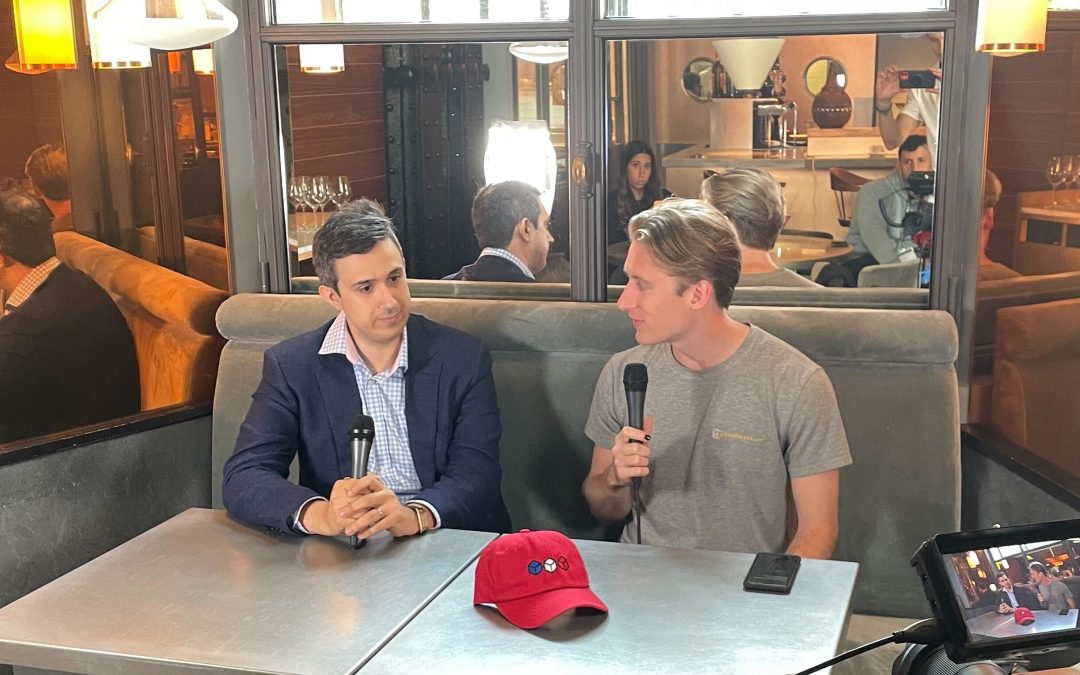This article is updated all day long. All time codes are in the UTC time zone, updates in reverse order (the latest update is placed at the top). Check the first-day coverage here.
Paris Blockchain Week Summit (PBWS) hosts multiple thought leaders from the crypto and blockchain universe on its second day, and the Cointelegraph ground team is at the venue to deliver the most recent developments from the event.
Paris NFT Day, the prequel event to the PBWS, saw the announcement of Cointelegraph France. On Wednesday, the Cointelegraph team delivered the important tidbits from sessions, as well as quotes from exclusive interviews, in a near real-time manner. CT reporters had the chance to interview key people from the crypto ecosystem, including Binance CEO CZ, Tether chief technology officer Paolo Ardoino and Binance’s NFT platform lead Helen Hai.
Don’t forget to check this article regularly to get notified about the most recent announcements from the event.
10:30 — “On-chain governance makes it easier for implementing changes and executing upgrades over a hard fork. Governance is key to the success of blockchain networks being a part of our daily lives, however, it requires a lot of optimization to make the transition process seamless,” says Tezos co-founder Arthur Breitman during his keynote.
Talking about the various advantages of roll-ups, Breitman says these rollups offer both horizontal and vertical scaling for a blockchain system. He added, rollups will eventually become key to scalability of blockchain networks.
09:50 — Twenty minutes prior to his keynote, Tezos co-founder Arthur Breitman sat down with the Cointelegraph team.
“Right now, we’re at a high tide and there is a lot of excitement in the crypto space. But, at some point, the tide will go out and at that point, we will see some really interesting use cases. Essentially once the hype dies down.”
“Consolidation of layer 1 technologies will happen. I wouldn’t say it’s a zero-sum game and at this point in time everyone has room to grow, but there will be a point in which consolidation comes in.”
9:30 — During the CBDCs and Stablecoins session, Stellar Development Foundation’s Jason Chlipala noted that Blockchain technology has made way for us to move into a common paradigm where safe and secure digital assets can be issued on a common infrastructure, which could “lead to an interoperable world.”
“CBDCs and stablecoins would co-exist as they serve different purposes. But, CBDCs are gonna be the next piece of the puzzle to create a global infrastructure.” He adds: “Stablecoins don’t have to replace cash completely, rather become an addition to the existing infrastructure.”
9:10 — Six Digital Exchange legal head Inmaculada Navas explains that crypto regulations have evolved immensely in Switzerland since 2018, and now Anti-Money Laundering (AML) and Know Your Customer (KYC) are quite huge in the country. “With the likes of Blockchain Law coming into force in 2020 impacted a lot of civil laws as well,” she adds.
8:50 — “I would give MiCA regulations a 5/10 with a lot of scope for improvement,” says Euronext head of innovation Emilie Rieupeyroux.
“From a regulatory point of view, we cannot expect a 100% perfect regulatory copy, but what is more important is that regulators come up with something that enables mass adoption,” she added in the Regulation of Digital Assets- How to Protect Stakeholders session.
Near Foundation CEO Marieke Flament told Cointelegraph: “The industry has a substantial positive impact at the local level — in terms of communities and networks. Here in France, for example, the French community is tight-knit and growing.”

8:20 — “El Salvador is set to pass a new law that would cover all the needs of additional asset service providers and offer a government license to operate in the country. Bitfinex has built a new fundraising platform in light of the upcoming license, and it would allow the government to raise funds for their volcanic bond,” adds Paolo Ardoino.
8:10 — “Crypto use cases for remittance and even paying wages have seen a surge in Latin America and Central Africa. Nigeria, at the moment, is the most underrated crypto hotspot with a vibrant crypto economy,” says ZenGo CEO Ouriel Ohayon.
Bitfinex CTO Paolo Ardoino noted that Tether (USDT), a stablecoin, is seen as a reserve asset in Turkey, Venezuela, Argentina and other similar countries. It’s sad because it should be supposed to work as an FX currency, he added:
“Bitcoin, DEX and CEX are financial solutions for nearly 2 billion unbanked population around the world.”
8:00 — The second day kicked off with The Future of Crypto Exchanges in Emerging Markets session.










